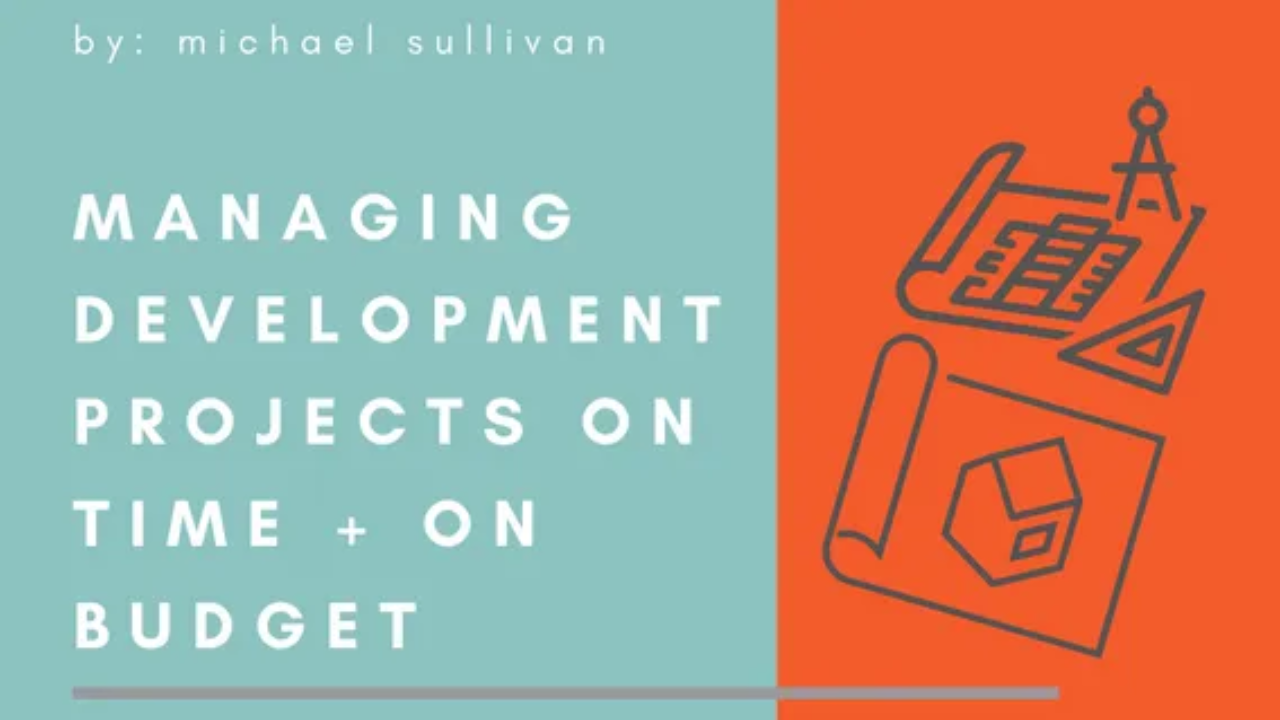Managing Development Projects On Time & On Budget
Jul 28, 2021
As a private sector planner, clients almost always focus on time and money. This means I am expected to manage the project from the estimate, right through to completion by keeping costs down and the project moving along. This takes strong project management skills to accomplish, in addition to our other skills, like research, writing, analysis, presenting and defending our independent professional opinion.
So how do we do this? Two words come to mind: scope and process. In other words, what work are we going to do and how long will it take us to achieve success.
Scope is defined as “a detailed outline of all aspects of a project, including all related activities, resources, timeline, and deliverables, as well as the project’s boundaries”. In short, define the work you are going to do and NOT do. In project management language, this is Planning & Executing for the project.
As a private sector planner, we may be approached to help our client achieve municipal approval for a new townhouse development.
Simple enough, right?
Sure.
Such developments are governed by legislation, Ontario’s Planning Act for example. A typical process includes key milestones (e.g. Pre-Consultation, Complete Application, Public Meeting, Council Approval), then fill in the steps to get there.
Simple?
Not quite.
Let’s say you’ve gone to Pre-Consultation (initial meeting with city/town) with a client-approved plan. Then something happens that requires a change in the design.
Was this anticipated? Who knows.
But we do know it’ll result in more work to do, which is a change in scope.
Communications are key in managing scope. This includes communicating with your client as soon as the scope changes to avoid surprises. Some companies require written “Scope Change” forms completed and signed off by the project manager and client. For some, like my company, this may be a bit too formal. This is called controlling the project.

Planning Process is defined by the type of development applications involved: from a simple development application to a potentially complicated re-development such as a Subdivision or Condominium. The process varies between a few months and potentially years. The process to follow, which could involve multiple applications, should be Planned based on the slowest/longest process. This involves knowing each step in the process(es) you will need to undertake, based on the scope of the project.
Remember that municipal planners have their own internal process to manage, which needs to be managed by you, so that the client understands each step and is not surprised by a change in scope or timing.
Every planning professional needs to be a good project manager. Identifying your goal, based on scope and process, allows us to work backwards to determine timing, to meet critical milestones.
Want to continue learning? Michael is teaching a virtual project management course for planners this Fall 2021 [Sept 15 - Dec 15]. For more information and to register follow this link: Project Management for Planners and Technologists.
-
The Project Management Institute is a key resource towards the Project Management Professional designation and many planners have a membership with the Institute!
-
Terry Clarke's Book - Project Management for Planners
-
Check with your planning institute, association or chapter for planning specific project management courses
This is not meant to be an exhaustive list but rather a few suggestions to get you started! Continue to explore, discover, and share resources with your colleagues. Have something to add to the list or insights on managing project on time and on budget? Share in the comments below!

Michael Sullivan, RPP, EP has a BAA (Urban & Regional Planning) from Ryerson University (Toronto) and an MPlan (Rural Planning & Development) from the University of Guelph. Professionally, he has over 28 years of experience in land use and environmental planning. He is President of LandPro Planning Solutions Inc., a boutique land use and environmental planning firm with offices in Niagara and Simcoe, Ontario. His interests are in small town and rural development projects, which often involve the nexus between land use and environmental matters.

